01 - Diplomacy and Education: A Systematic Review of Literature...
http://dx.doi.org/10.31703/gssr.2020(V-III).0110.31703/gssr.2020(V-III).01 Published : Sep 2020
-
Preference is given to the recently published scholarship in prominent journals and publishers. Secondary sources of data related to educational exchanges and its role in diplomacy have been extensively studied. It was observed that whether it's a small country or a major player in the international politics, educational exchanges and bursaries play a vital role in promoting its soft image in addi... Details
-
Educational Exchanges, Public Diplomacy, Soft Power, Foreign Policy
-
(1) Muhammad Mussa Khan
PhD Scholar, Department of Media and International Culture, Zhejiang University, Hangzhou, China
(2) Riaz Ahmad
Assistant Professor, Department of Public Policy and Administration, Xi'an Jiaotong University, Xi'an, China.
(3) Lloyd W. Fernald
Professor, Department of Management, University of Central Florida & Dean of Graduate Studies, Orlando University, Orlando, Florida, USA.
02 - Lived Experiences of Women Entrepreneurs Regarding Socio-Cultural Constraints in...
http://dx.doi.org/10.31703/gssr.2020(V-III).0210.31703/gssr.2020(V-III).02 Published : Sep 2020
-
The research paper investigates the socio-cultural constraints faced by women entrepreneurs during startup and expansion of their entrepreneurial ventures in Ahmedpur East of District Bahawalpur through documenting their lived experiences. The research is primarily a multi-sited ethnography and utilizes qualitative research methods such as in-depth semi-structured interviews and focused group disc... Details
-
Ahmedpur East, Entrepreneurship, Gender, Lived Experiences, Multi-Sited Ethnography, Socio-Cultural Challenges, Southern Punjab, Women Entrepreneur
-
(1) Mehreen Raza
M. Phil Scholar, Department of Anthropology, Quaid-e-Azam University, Islamabad, Pakistan.
(2) Inam Ullah Leghari
Assistant Professor, Department of Anthropology, Quaid-e-Azam University, Islamabad, Pakistan.
03 - Reconnoitering the Impact of Motivation on Teachers and Students to Use L1 in L2...
http://dx.doi.org/10.31703/gssr.2020(V-III).0310.31703/gssr.2020(V-III).03 Published : Sep 2020
-
The purpose of the current study was to explore the impact of motivation on teachers and students to use L1 in the L2 classroom. To find out an obvious understanding of this subject matter, the study focused on the 156 teachers and the 577 students who were teaching and learning English at graduation level in different public sector colleges and universities of the Southern Punjab, Pakistan. Two q... Details
-
First Language, Second Language, Motivation, BS, BA/BSc, B.Com
-
(1) Muhammad Ahsan
Lecturer, Department of English, Ghazi University Dera Ghazi Khan, Punjab, Pakistan.
(2) Zahoor Hussain
Lecturer, Department of English, Bahaudin Zakariya University, Layya Campus, Punjab, Pakistan.
(3) Muhammad Gulfraz Abbasi
Associate Professor, Department of English, Government College Murree, Punjab, Pakistan.
04 - The Impact of Delegation of Authority on Job Satisfaction, Job Performance and O...
http://dx.doi.org/10.31703/gssr.2020(V-III).0410.31703/gssr.2020(V-III).04 Published : Sep 2020
-
The present study is explanatory research that adopted a cross-sectional survey design to achieve the objectives of the study. Simple random sampling technique was used to obtain data from the teachers. The data were collected from n=10 public and general private universities of Sindh. The data were analyzed using SPSS v.22 and AMOS v.22. The findings revealed that firstly, a delegation of authori... Details
-
Delegation of Authority, Job Satisfaction, Job Performance, Organizational Growth, Higher Educational Institutions of Sindh
-
(1) Syed Gul Muhammad Shah
PhD Scholar, Iqra University Karachi, Sindh, Pakistan.
(2) Anjum Bano Kazmi
Professor, Department of Speech and Language, Iqra University Karachi, Sindh, Pakistan.
05 - 21st Century Leadership Skills Practiced by School Leaders in Pakistan During CO...
http://dx.doi.org/10.31703/gssr.2020(V-III).0510.31703/gssr.2020(V-III).05 Published : Sep 2020
-
21st-century leaders need strong leadership skills to effectively lead schools. They must use and implement 21st-century skills for long term change. The study aimed to identify the practices of secondary school leaders of Rawalpindi city about [recommended] 21st century 4 Cs leadership skills (Competence, Character, Compassion & Courage) during the pandemic of Covid-19. This was exploratory r... Details
-
21st Century Leadership Skills, School Leaders, and Practices
-
(1) Mehr Bakht
Visiting Faculty, Department of Education, Fatima Jinnah Women University, Rawalpindi, Punjab, Pakistan.
(2) Salma Nazar Khan
Assistant Professor, Department of Education, Fatima Jinnah Women University, Rawalpindi, Punjab, Pakistan.
(3) Gerardo L Blanco
Academic Director, Center for International Higher Education. Boston College, USA.
06 - Metadiscourse Markers in Political Discourse: A Corpus-Assisted Study of Hedges ...
http://dx.doi.org/10.31703/gssr.2020(V-III).0610.31703/gssr.2020(V-III).06 Published : Sep 2020
-
Metadiscourse markers play an important role in academic, media, and political discourse. Political leaders use discourse markers to express their ideas and thoughts persuasively and compellingly. The paper identifies the interactive meta-discourse markers in Benazir Bhutto's speech and explains how the use of meta-discourse markers, such as boosters and hedges, can strengthen or weaken the impact... Details
-
Metadiscourse Markers, Political discourse, Benazir Bhutto, Corpus Assisted.
-
(1) Arshad Ali
Assistant Professor, Department of English, National University of Modern Languages, Islamabad, Pakistan.
(2) Athar Rashid
Assistant Professor, Department of Governance & Public Policy, National University of Modern Languages, Islamabad, Pakistan.
(3) Shahid Abbas
Lecturer, Department of English, University of Sargodha, Punjab, Pakistan.
07 - Exploring the Presence of Balanced Growth: Empirical Evidence from Denmark...
http://dx.doi.org/10.31703/gssr.2020(V-III).0710.31703/gssr.2020(V-III).07 Published : Sep 2020
-
The aim of present study was to explore existence of long-run association between consumption, income and investment implied by Balanced Growth proposition of Neo-classical-growth-model of the Solow and Swan (1956). Using quarterly data on consumption, income and investment from 1995q1 through 2018q4. The study have tested the balanced growth hypothesis for the Denmark. Using standard Vector-Auto-... Details
-
Balanced Growth, Consumption, Investment, Output, cointegration, Time Series, Impulse Response, Variance Decomposition
-
(1) Ghulam Yahya Khan
Assistant Professor, Kashmir Institute of Economics, University of Azad Jammu & Kashmir, Muzaffarabad, Pakistan.
(2) Muhammad Masood Anwar
PhD Scholar, Kashmir Institute of Economics, University of Azad Jammu & Kashmir, Muzaffarabad, Pakistan.
(3) Aftab Anwar
Assistant Professor, University of Education Lahore, Punjab, Pakistan.
08 - Spatial Justice and Gender Socialization in Jamil AhmadÃâs The Wandering...
http://dx.doi.org/10.31703/gssr.2020(V-III).0810.31703/gssr.2020(V-III).08 Published : Sep 2020
-
'With Justin Williams' 'spatial justice' and Pierre Bordieu's 'role of gender', this article explores how gender socialization is the outcome of spatial correspondences and how the biological concerns regarding gender, specifically in third world countries like Pakistan, are the catalysts in this process of gender socialization. In this regard, this article delimits Jamil Ahmad's The Wandering Fal... Details
-
Gender, Pakistani Literature, Space, Spatial Justice, Tribalism.
-
(1) Amna Ijaz Butt
Visiting Lecturer, Department of English, Government College University Faisalabad, Punjab, Pakistan.
(2) Kanza Umer Khan
Lecturer, Department of English, Government College University Faisalabad, Punjab, Pakistan.
(3) Nafees Parvez
MPhil, Department of English, Government College University Faisalabad, Punjab, Pakistan.
09 - Glocal Game of Chess in South Asia: A Tridimensional Study of Rahman's In the Li...
http://dx.doi.org/10.31703/gssr.2020(V-III).0910.31703/gssr.2020(V-III).09 Published : Sep 2020
-
With Dirk C. Van Raemdonck's theory of 'tridimensional game of chess in South Asia', this study explores how the Great Game of chess has encompassed the board of Afghanistan into the strategic and economical range of global as well as local nations. In this regard, this study delimits Zia Haider Rahman's 'In the Light of What We Know' to examine the role of great (US, India), little (Pakistan, Sau... Details
-
Globalization, Glocalization, Great Game, South Asia, War on Terror
-
(1) Atta -ul- Mustafa
PhD Scholar, Department of English, Govt. College University Faisalabad, Punjab, Pakistan.
(2) Ali Usman Saleem
Assistant Professor, Department of English, Govt. College University Faisalabad, Punjab, Pakistan.
(3) Qasim Shafiq
PhD Scholar, Department of English, National University of Modern Languages Islamabad, Pakistan.
10 - Towards Harmonizing the Mythic and The Modern in Erdrichs Tracks: A Magical Real...
http://dx.doi.org/10.31703/gssr.2020(V-III).1010.31703/gssr.2020(V-III).10 Published : Sep 2020
-
This article is an endeavor to provide an insight into Native American novelist Louise Erdrich's use of the magical-realist technique in an attempt to harmonize the mythic and modern conceptions of reality represented by the Native American and Euro American subjects, respectively. The article demonstrates that in an attempt to seek a way possible to intertwine the two cultures, to wed the Native ... Details
-
Magical Realism, Myth, Native American Woman, Oral Tradition, Storytelling
-
(1) Mumtaz Ahmad
Assistant Professor, Department of English, Government Guru Nanak Postgraduate College, Nankana Sahib, Punjab, Pakistan.
(2) Asma Haseeb Qazi
Assistant Professor, Department of English, National University of Modern Languages, Islamabad, Pakistan.
(3) Sahar Javaid
Lecturer, Department of English, Government College University, Faisalabad, Punjab, Pakistan.
11 - Gender Perception in Multi-cultural Classroom Discourse...
http://dx.doi.org/10.31703/gssr.2020(V-III).1110.31703/gssr.2020(V-III).11 Published : Sep 2020
-
Societies shape people in and outwards look with different connotations such as gender, attitude and behavior. Humans are the product of society, and each society is different in terms of the environment created by the dwellers. There are societal taboos that are common and similar in most societies of the world, but such cultural affinities are due to the geographical association and the impact o... Details
-
Multicultural, Discourse, Gender, Society, Behavior, Respondent
-
(1) Samiullah Khan
Lasbela University of Agriculture Water and Marine Sciences, Uthal, Balochistan, Pakistan.
(2) Sanam Wagma Khattak
Lecturer, University of Peshawar, KP, Pakistan.
(3) Sarfaraz Ahmed Shaikh
Director, Indus Center for Sustainable Development, Karachi, Sindh, Pakistan.
12 - Socio-Cultural Barriers of Safe Water, Sanitation and Hygiene Practices in South...
http://dx.doi.org/10.31703/gssr.2020(V-III).1210.31703/gssr.2020(V-III).12 Published : Sep 2020
-
Access to safe drinking water and sanitation is the basic right of every human being which directly influence health and social outcomes. Without adopting a project to its cultural settings, the project has very little or no chance for success or to be sustainable. The objective of the present study was to examine the socio-cultural barriers towards safe water, sanitation and hygiene practices in ... Details
-
Water, Sanitation & Hygiene (WASH), Socio-Cultural, Cultural Norms, Social Mobilization, Southern Punjab, Pakistan
-
(1) Hasan Ghaffoor
PhD Scholar, Department of Sociology, Government College University, Faisalabad, Punjab, Pakistan.
(2) Muhammad Farooq
Associate Professor, Department of Sociology, Government College University, Faisalabad, Punjab, Pakistan.
(3) Sadaf Mahmood
Assistant Professor, Department of Sociology, Government College University, Faisalabad, Punjab, Pakistan.
13 - Status Quo, Monetary Loss-Aversion and Forecasting - An Approach to Investment D...
http://dx.doi.org/10.31703/gssr.2020(V-III).1310.31703/gssr.2020(V-III).13 Published : Sep 2020
-
The research essay aims to understand investor's ability to forecast having the perception of status quo and monetary loss-aversion in the situation of amygdala damages and asymmetry during decisions regarding stock's investment and use of several techniques to make efficient investment decisions based on optimal forecasting. The objectives of this study are to inquire about the irrationalities in... Details
-
Status Quo, Monetary Loss-Aversion, Forecasting, Investment
-
(1) Muhammad Awais
Assistant Professor, Department of Economics & Finance, Foundation University Islamabad, Pakistan.
(2) Sadaf Kashif
Assistant Professor, Department of Business Administration, Iqra University Islamabad, Pakistan.
(3) Asif Raza
Head of Business Operations, DPL (Pvt) Ltd. Islamabad, Pakistan
14 - Women used as Weapons of War in Conflict Zones: A Case Study of Indian Held Kash...
http://dx.doi.org/10.31703/gssr.2020(V-III).1410.31703/gssr.2020(V-III).14 Published : Sep 2020
-
This Qualitative in-depth study aimed to explore whether women are treated as a weapon of war in conflict zones. Women are exploited, and their feminity is used against them as a weapon, and Indian Army troops deployed in Indian occupied Kashmir are leaving no stone unturned to harm and disgrace the Kashmiri Community by raping and harassing their women. Women living in Indian Occupied Jammu and K... Details
-
Women, Weapon of War, Conflict Zones, Indian Held Kashmir
-
(1) Noor Ul Ain Nasir
Lecturer, School of Media and Communication Studies, University of Management and Technology, Lahore, Punjab, Pakistan.
(2) Haseeb ur Rehman Warrich
Associate Professor, Department of Arts and Media, Foundation University, Islamabad, Pakistan.
(3) Noshaba Nargis
Lecturer, Department of Mass Communication, GC University, Faisalabad, Punjab, Pakistan.
15 - Representation of Male Dominance in the Character of Heathcliff in E. Bronte' Wu...
http://dx.doi.org/10.31703/gssr.2020(V-III).1510.31703/gssr.2020(V-III).15 Published : Sep 2020
-
The present paper is the discursive interpretation of dominance and barbarity in Bronte's Wuthering Heights. The researcher's main aim of the study is to explore the issues under consideration through Critical Discourse analysis (CDA). It is the best way to address power relations and dominance. Fairclough's (1989) CDA approach is the basic tool for the analysis of any kind of discourse/text, i.e.... Details
-
Emile Bronte, Critical Discourse Analysis, Wuthering Heights, Fairclough's Tree Dimensional Model (TDM)
-
(1) Abdul Karim Khan
Assistant Professor, Department of English & Applied Linguistics, University of Science and Technology, Bannu, KP, Pakistan.
(2) Ihsan Ullah Khan
Assistant Professor, Department of English & Applied Linguistics, University of Science and Technology, Bannu, KP, Pakistan.
(3) Abdus Samad
Assistant Professor, Department of English, Kohat University of Science and Technology, Kohat, KP, Pakistan.
16 - A Critical Discourse Analysis of Discursive Reproduction of Ideologies in Pakist...
http://dx.doi.org/10.31703/gssr.2020(V-III).1610.31703/gssr.2020(V-III).16 Published : Sep 2020
-
The present study, based on Van Dijk (2005) ideological square model, aims to show how the two countries, i.e., Pakistan and India, represent each other through their newspaper's discourse. Using Van Dijk's (2005) framework (positive self-presentation, negative other-presentation) for discourse analysis, this study examines linguistic features in fifty editorials of three Pakistani and three India... Details
-
Discourse, Critical Discourse Analysis, Ideology, Editorial, Pulwama Attack, Kashmir
-
(1) Arif Khan
MPhil Scholar, Department of English, Hazara University Mansehra, KP, Pakistan.
(2) Ghani Rahman
Assistant Professor, Department of English, Hazara University Mansehra, KP, Pakistan.
(3) Sajid Iqbal
Lecturer, Department of English, University of Malakand, Malakand, KP, Pakistan.
17 - The Impact of Going Public Decision on Company Performance: Evidence from Pakist...
http://dx.doi.org/10.31703/gssr.2020(V-III).1710.31703/gssr.2020(V-III).17 Published : Sep 2020
-
This study inspected the association of company performance with the choice of IPO of the firm's registered on the Pakistan Stock Exchange. In particular, two dimensions of performance, Return on Sales and Return on Asset as operating and Tobbin Q as Market performance as dependent variables, Bank debts, Capital Expenditure, Ownership Concentration, Sales Growth and Firm Size as independent variab... Details
-
SECP, PSX, IPO, CDC, Operating Performance, Market Performance
-
(1) Ihtesham Khan
Institute of Business Studies and Leadership, Abdul Wali Khan University, Mardan, KP, Pakistan.
(2) Sikandar Shah
MS (Management Sciences), Institute of Business Studies and Leadership, Abdul Wali Khan University, Mardan, KP, Pakistan.
(3) Wisal Ahmad
Institute of Business Studies and Leadership, Abdul Wali Khan University, Mardan, KP, Pakistan.
18 - Qualms about the CEDAW by the Muslim States: Analyzing Women Rights in Pakistan,...
http://dx.doi.org/10.31703/gssr.2020(V-III).1810.31703/gssr.2020(V-III).18 Published : Sep 2020
-
The incompatible reservations have adversely affected the uniform application of the CEDAW Convention. A significant number of incompatible reservations have been formulated by the Muslim states. Such reservations have undermined the CEDAW provisions and conceivably doubt the state's accountability for its obligations under the Convention. The research comprises of two parts; first, it examines th... Details
-
Qualms of Muslim States to CEDAW, Women Rights in the Muslim States and Implementing CEDAW Convention in the Muslim States
-
(1) Zaheer Iqbal Cheema
Assistant Professor, University Law College, New Campus, Lahore, Punjab, Pakistan.
(2) Zarfishan Qaiser
Assistant Professor, University Law College, New Campus, Lahore, Punjab, Pakistan.
(3) Khushbakht Qaiser
Assistant Professor, Kinnaird College for Women, Lahore, Punjab, Pakistan.
19 - Towards Automatic Updates of Software Dependencies based on Artificial Intellige...
http://dx.doi.org/10.31703/gssr.2020(V-III).1910.31703/gssr.2020(V-III).19 Published : Sep 2020
-
Software reusability encourages developers to heavily rely on a variety of third-party libraries and packages, resulting in dependent software products. Often ignored by developers due to the risk of breakage but dependent software have to adopt security and performance updates in their external dependencies. Existing work advocates a shift towards Automatic updation of dependent software code to ... Details
-
Automatic Updates of Software Dependencies, Upldate Based on Artificial Intelligence, Automatice Software Dependencies Updation
-
(1) Naveed Jhamat
Assistant Professor, Department of Information Technology, University of the Punjab, Gujranwala Campus, Lahore, Pakistan
(2) Zeeshan Arshad
Lecturer, Department of Information Technology, University of the Punjab, Gujranwala Campus, Lahore, Pakistan.
(3) Kashif Riaz
Department of Computer Science, Government Post Graduate College Satellite Town, Gujranwala, Punjab, Pakistan.
20 - Translation from Pashto to English: An Analysis of Deforming Tendencies in the E...
http://dx.doi.org/10.31703/gssr.2020(V-III).2010.31703/gssr.2020(V-III).20 Published : Sep 2020
-
Intending to identify that how meaning in the source text has been reproduced in the translated text, the study attempts to investigate deforming tendencies used in the selected poems of Abdul Ghani Khan translated from Pashto into English by Imtiaz Ahmed Sahibzada. Imtiaz Sahibzada has translated 141 poems from the mammoth corpus of Abdul Ghani Khan's Poetry into English and named it The Pilgrim ... Details
-
Pashto, English, English Translation, Abdul Ghani Khan, Poetry
-
(1) Raees Ahmad
MPhil Scholar, Deaprtment of English, Abdul Wali Khan University Mardan, KP, Pakistan.
(2) Liaqat Iqbal
Assistant Professor, Department of English, Abdul Wali Khan University Mardan, KP, Pakistan.
(3) Irfan Ullah
Assistant Professor, Department of English, Abdul Wali Khan University Mardan, KP, Pakistan.
21 - A Qualitative Study of Dyadic Coping among Couples Dealing with Burden of Chroni...
http://dx.doi.org/10.31703/gssr.2020(V-III).2110.31703/gssr.2020(V-III).21 Published : Sep 2020
-
The present qualitative study aimed in-depth exploration of dyadic coping among couples dealing with chronic illness. There were 12 couples (six females and six males) with chronic illness and their healthy partners were interviewed. The in-depth interviews were conducted through interview guide based on Systematic Transactional Model (STM) (Bodenmann, 1995) and lived experiences of participants. ... Details
-
Dyadic Coping, Burden of Illness, Cardiovascular Diseases, Diabetes, Hypertension
-
(1) Misbah Arshad
PhD Scholar, Department of Psychology, University of Gujrat, Gujrat, Punjab, Pakistan.
(2) Bushra Bibi
Assistant Professor, Department of Psychology, University of Gujrat, Gujrat, Punjab, Pakistan.
22 - Investigating Sociocognitive Functions of Mother Tongue in a Postgraduate EFL Cl...
http://dx.doi.org/10.31703/gssr.2020(V-III).2210.31703/gssr.2020(V-III).22 Published : Sep 2020
-
Recent studies, however, have shown that MT serves a symbolic tool and can be way more effective in L2 learning than the exclusive use of TL. While many studies have examined the extent and functions of MT, only a few have explored the sociocognitive functions using Vygotsky's sociocultural (SCT) framework. The present study, therefore, adopted SCT to examine the amount and sociocognitive function... Details
-
Mother Tongue, Second Language Learning, Sociocultural Theory, Medium of Instruction, Higher Education, Language Policy
-
(1) Hassan Syed
Assistant Professor, Department of Education, Sukkur IBA University, Airport Road, Sukkur, Singh, Pakistan.
(2) Farhan Bhutto
Lecturer, Department of English, Sukkur IBA University, Airport Road, Sukkur, Singh, Pakistan.
(3) Tanweer Syed
Lecturer, Department of Education, Sukkur IBA University, Airport Road, Sukkur, Singh, Pakistan.
23 - Perceptions of Secondary School Female Teachers' About the Effects of Class Size...
http://dx.doi.org/10.31703/gssr.2020(V-III).2310.31703/gssr.2020(V-III).23 Published : Sep 2020
-
The main aim of this study was to see the perceptions of female teachers of secondary schools about the relationship between class size and students learning outcomes. Variable Learning outcome (LO) was selected for comparing teaching in overcrowded classes versus small-sized classrooms. Primary data were collected from the same teachers who had the experience of teaching both overcrowded classes ... Details
-
Female Secondary Schools, Class Size, Learning Outcomes (LO)
-
(1) Samreen Mehmood
Assistant Professor, Department of Education, Abdul Wali Khan University Mardan, KP, Pakistan.
(2) Saira Shereen
M.Phil Scholar, Department of Education, City University Peshawar, Peshawar, KP, Pakistan.
(3) Madeeha Murad
Lecturer, Department of Education, University of Chitral. Chitral, KP, Pakistan.
24 - Assessing the Impact of Vocational and Technical Education (VTE) for Human Capit...
http://dx.doi.org/10.31703/gssr.2020(V-III).2410.31703/gssr.2020(V-III).24 Published : Sep 2020
-
Technical Vocational Education and Training Program, also known as TVET, is broadly recognized as one of the most prominent disciplines in the education system. Technical education, as included in Pakistan's national education policy, is concerned with the quality technological human capital leading to a national pool of skilled and self-reliant artisans, technicians and technologists in the field... Details
-
Balochistan, TVET System, TVET Practices, Human Capital Development, Government Policies & Strategies, Curriculum Design, Curriculum Delivery
-
(1) Shoaib Younis
MS Scholar, Institute of Management Sciences, University of Balochistan Quetta, Balochistan, Pakistan.
(2) Saubia Ramzan
Dean, Faculty of Management Sciences Business and IT, University of Balochistan Quetta, Balochistan, Pakistan.
(3) Nagina Gul
Assistant Professor, Department of Management Sciences, Faculty of Management Sciences, Balochistan University of Information Technology, Engineering & Management Sciences, Quetta, Balochistan, Pakist
25 - Structure, Function and Historical Importance of Watermills in the Swat Valley...
http://dx.doi.org/10.31703/gssr.2020(V-III).2510.31703/gssr.2020(V-III).25 Published : Sep 2020
-
The paper deals with the architecture and function of watermills in Swat valley. Watermill is a seldom-used term; however, it has played a significant role in the socio-cultural and economic lives of people in the past. This research work explores the case study of water mills in the Swat region. It examined in detail its processing and operation. The watermill was not only an instrument used for ... Details
-
Water Mill, Swat, History, Archeology, Culture
-
(1) Faisal Khan
Visiting lecturer, University of Swat, Mingora, KP, Pakistan.
(2) Junaid Babar
Lecturer, University of the Poonch, Rawalakot, Azad Kashmir, Pakistan.
(3) Zahir Hussain
MPhil, Quaid Azam University Islamabad, Pakistan.
26 - Impact of Work Overload and Fear of Negative Evaluation on Employees Performance...
http://dx.doi.org/10.31703/gssr.2020(V-III).2610.31703/gssr.2020(V-III).26 Published : Sep 2020
-
The study focused on the most critical issues like work overload and the fear of negative evaluation, and here we measured the impact of work overload and the fear of negative evaluation in addition resultantly occur the role of frustration on employees' performance in Commercial Banks of Islamabad, Pakistan. An online and by hand floated questionnaires were distributed to the employees to obtain ... Details
-
Work Overload, Fear of Negative Evaluation, Employee Performance, Frustration, Banks
-
(1) Sardar Ali
Department of Leadership and Management Studies, National Defence University, Islamabad, Pakistan.
(2) Muhammad Zia-ur-Rehman
Associate Professor, Department of Leadership and Management Studies, National Defence University, Islamabad, Pakistan.
27 - Development of Social Skills: A Study Comparing Male and Female Students' Social...
http://dx.doi.org/10.31703/gssr.2020(V-III).2710.31703/gssr.2020(V-III).27 Published : Sep 2020
-
The study explored the developed social skills between male and female students at the elementary level. A total of 550 Students were selected using multi-stage cluster sampling in the district of Lahore. Explored social skills included accepting criticism, showing respect, solving problems, accepting rights & responsibilities and tolerance of individual differences. A scale consisting of sixt... Details
-
Social Skills, Elementary Level, Social Studies, Showing Respect, Accepting Rights and Responsibilities
-
(1) Tallat Rashid
University of Education, Lahore, Punjab, Pakistan.
(2) Kiran Shehzadi
University of Education, Lahore, Punjab, Pakistan.
(3) Farzana Yousaf
University of Education, Lahore, Punjab, Pakistan.
28 - Developing Emancipatory Thinking through Narratives in Antebellum America...
http://dx.doi.org/10.31703/gssr.2020(V-III).2810.31703/gssr.2020(V-III).28 Published : Sep 2020
-
Literature has served as one of the most convincing tools for developing emancipatory thinking among Americans, particularly the colored people in the antebellum period. The current research paper is an attempt to study and explore how emancipatory thinking was developed through literature which is, generally considered to be more fictional than factual. Through the close reading of the selected n... Details
-
Antebellum, Close Reading, Narratives, Emancipatory Thinking, New Historicism
-
(1) Amir Jamil
Ph.D Scholar, Area Study Centre, Quaid-I-Azam University Islamabad/ Lecturer Department of English, Hafiz Hayyat Campus, University of Gujrat, Punjab, Pakistan.
(2) Bahramand Shah
Assistant Professor, Area Study Centre, Quaid-i-Azam University, Islamabad, Pakistan.
29 - English Literature Reading as Gendered Activity at Educational Primary Level...
http://dx.doi.org/10.31703/gssr.2020(V-III).2910.31703/gssr.2020(V-III).29 Published : Sep 2020
-
English is the certified language of Pakistan and intermediate of teaching in private schools. Learning an FL might be frustrating and challenging for some young learners. Stories in English as literature are an effective technique to teach young learners. This paper attempts to explore if reading stories in English as part of literature is a gendered activity with differences of interest by boys ... Details
-
Literature in English, Reading, English Curriculum, Gender
-
(1) Zainab Akram
Assistant Professor, Department of English, Sardar Bahadur Khan Women's University, Quetta, Balochistan, Pakistan.
(2) Sadia Suleman Khan
Assistant Professor, Department of Education, Sardar Bahadur Khan Women's University, Quetta, Balochistan, Pakistan.
(3) Maroof Bin Rauf
Assistant Professor, Department of Education, University of Karachi, Sindh, Pakistan.
30 - Political Development and Pakistan Studies at 10th Grade: An Analytical Study...
http://dx.doi.org/10.31703/gssr.2020(V-III).3010.31703/gssr.2020(V-III).30 Published : Sep 2020
-
Political participation and unity of nation on political affairs in the country to increase the participation of youth in political affairs their political development is a basic requirement. Pakistan studies support creating political awareness among the youth of the nation. This research study investigated that how the 10th grade 'Pakistan to study textbook' creates a political sense among the y... Details
-
10th Grade, Political Development, Secondary Level, Textbook, Content
-
(1) Alia Ayub
Associate Professor, Department of Education, SBKWU, Quetta, Balochistan, Pakistan.
(2) Khadija Karim
Associate Professor, Department of Education, SBKWU, Quetta, Balochistan, Pakistan.
(3) Shabana Akhtar
Assistant Professor, Department of Pakistan Studies, SBKWU, Quetta, Balochistan, Pakistan.
31 - Pak-U.S. Relations: An Analysis of Major Challenges (Post-9/11)...
http://dx.doi.org/10.31703/gssr.2020(V-III).3110.31703/gssr.2020(V-III).31 Published : Sep 2020
-
The Pak-U.S. relations have been through many ups and downs throughout the history of Pakistan. For most of the time during the cold war, relations remained either warm or normal except for some short periods. The ties went down the slope after the cold war and towards the onset of the twenty-first century. In addition to some drastic shifts in the regional and global political scenario, the incid... Details
-
U.S., Bilateral, Challenges, Strategic Harmony, Nuclear, F.M.C.T., Proliferation
-
(1) Sultan Mubariz Khan
Assistant Professor, Department of Political Science & IR, University of Gujrat, Gujrat, Punjab, Pakistan.
(2) Saiqa Hanif
Associate Lecturer, Department of Political Science & IR, University of Gujrat, Gujrat, Punjab, Pakistan.
(3) Shumaila Rafique
Associate Lecturer, Department of Political Science & IR, University of Gujrat, Gujrat, Punjab, Pakistan.
32 - US Policy of Regime Change: Interplay of Systemic Constraints, Leaders' Percepti...
http://dx.doi.org/10.31703/gssr.2020(V-III).3210.31703/gssr.2020(V-III).32 Published : Sep 2020
-
How are the systemic constraints transformed through the transmission belt of leader's idiosyncrasies and domestic pressures in order to result in the outcome, which is the pursuance or non-pursuance of regime change policy by the United States? This study analyses the foreign policy decision making of President Bush vis-a-vis Iraq, President Obama vis-a-vis Libya, and President Trump vis-a-vis Ir... Details
-
Regime Change, Systemic Constraints, Domestic Pressure, Leaders' Idiosyncrasies, United States, Iran, Iraq, Libya, Bush, Obama, Trump
-
(1) Muhammad Nadeem Mirza
Faculty Member, School of Politics and International Relations, Quaid-i-Azam University Islamabad, Pakistan.
(2) Ayesha Nayab
MPhil Graduate, School of Politics and International Relations, Quaid-i-Azam University Islamabad, Pakistan.
33 - Examining the Psychosocial Barriers of Female Students in Academic Settings of S...
http://dx.doi.org/10.31703/gssr.2020(V-III).3310.31703/gssr.2020(V-III).33 Published : Sep 2020
-
The collective responsibilities and rights of female students are ignored in the academic domain of Sindh, Pakistan. The third world countries are a mirror image of it and highlight their declining condition in the educational perspectives of female education. The twelve Psychosocial barriers are highlighted in this study. They are analyzed to know about their extent in female students in one of t... Details
-
Barriers, Female, Psycho, Social, Students, University
-
(1) Ali Siddiqui
MPhil Scholar, English Language Development Center (ELDC), Mehran University of Engineering and Technology (MUET), Jamshoro, Sindh, Pakistan.
(2) Tania Shabir Shaikh
MPhil Scholar, Institute of English Language and Literature (IELL), University of Sindh, Jamshoro, Sindh, Pakistan.
34 - Acid Violence in Pakistan: A Study on Women Victims of Acid Attacks in Karachi...
http://dx.doi.org/10.31703/gssr.2020(V-III).3410.31703/gssr.2020(V-III).34 Published : Sep 2020
-
Acid violence is a horrible act of gender violence in orthodox societies. A study was conducted to know the reasons for the acid violence against women in Pakistani society. For this purpose, female acid attack survivors were recruited from Karachi city of Sindh province in Pakistan. We found personal conflicts and rejection of marriage proposals as major reasons for acid attacks on women. The maj... Details
-
Acid Violence, Gender Violence, Women Victims, Pakistan
-
(1) Sadia Ismail
MS Scholar, SMI University, Karachi, Sindh, Pakistan.
(2) Subhash Guriro
Associate Professor, Department of Social Development, SMI University, Karachi, Sindh, Pakistan.
(3) Muhammad Kamil Lakho
Lecturer, Department of Social Development, SMI University, Karachi, Sindh, Pakistan.
35 - Effect of Self-Efficacy on the Performance of Football Referees in Pakistan...
http://dx.doi.org/10.31703/gssr.2020(V-III).3510.31703/gssr.2020(V-III).35 Published : Sep 2020
-
Referees and officials are a very important part of competitive sports not only because of their impact on players' behaviors and game outcomes but also because they ensure that competitions are conducted safely according to specific rules of the game. The current study sought to evaluate the relationship of these various levels to perform in numerous aspects of officiating. A second purpose was t... Details
-
Self Efficacy, Referee, Football
-
(1) Yasmeen Tabassum
Department of Sport Sciences and Physical Education, University of the Punjab, Lahore, Punjab, Pakistan.
(2) Iqra khadim
Department of Sports Archeology and Tourism, Youth Affairs, Narowal, Punjab, Pakistan.
(3) Hurria Hussein
Department of Sports for Women, University of the Punjab, Lahore, Punjab, Pakistan.
36 - An Exploratory Study about the Role of Experiential Learning for Developing Prof...
http://dx.doi.org/10.31703/gssr.2020(V-III).3610.31703/gssr.2020(V-III).36 Published : Sep 2020
-
This study explores the learning experiences of postgraduate students pursuing master's degree in higher education. The assessment students enrolled in the course "Application of Computer in Research" observed through semi-structured observations. These observations contained 16 weeks (4 days a week). The observation tool was validated through five experts' opinions, and a mock observation was con... Details
-
Experiential Learning, Learning Experiences, Postgraduates, Active Learning, Higher Education, Practical Approach
-
(1) Sidrah Ilyas
PhD Scholar, Institute of Education & Research, University of the Punjab, Lahore, Punjab, Pakistan.
(2) Mahvish Fatima Kashif
Assistant Professor, Department of Education, Lahore College for Women University, Lahore, Punjab, Pakistan.
(3) Hafiza Sadiya Iqbal
Lecturer, Department of Education, Lahore College for Women University, Lahore, Punjab, Pakistan.
37 - Information Communication Technologies Hauling Out University Students' Effectiv...
http://dx.doi.org/10.31703/gssr.2020(V-III).3710.31703/gssr.2020(V-III).37 Published : Sep 2020
-
The COVID-19 pandemic has brought significant improvements in the world's educational practices and has become a realization of the ideal of online education, whereas COVID-19 is a global problem that affects institutions of higher education (HEIs). The present study is based on the research question: what are the challenges and benefits of ICTs for hauling out university students' effective learn... Details
-
ICTs, Effective Learning, COVID-19
-
(1) Rashid Minas Wattoo
Assistant Professor, Department of Education, University of Sialkot, Sialkot, Punjab, Pakistan.
(2) Muhammad Latif
Assistant Professor, Department of Education, Government College Women University Sialkot, Sialkot, Punjab, Pakistan.
(3) Namra Munir
Assistant Professor, Department of Education, University of Education, Vehari Campus, Punjab, Pakistan.
38 - The Effects of Cardiovascular Exercises on Body Mass Index and Vital Capacity am...
http://dx.doi.org/10.31703/gssr.2020(V-III).3810.31703/gssr.2020(V-III).38 Published : Sep 2020
-
This research was designed to evaluate the effect of cardiovascular exercises on body mass index (BMI) and vital capacity (VC) among student aged between 21-27 years (M ± SD 22.3± 3.05). The experimental research study was applied to 54 University students of Sargodha. Data were analyzed by using SPSS version 24.0. P-value ? 0.05 was considered significant. The result showed that the... Details
-
Cardiovascular Exercises, BMI Body Mass Index, VC Vital Capacity, University Students, and Sedentary Lifestyle
-
(1) Yassar Iqbal
Lecturer, Department of Sports Sciences, University of Sargodha, Sargodha, Punjab, Pakistan.
(2) Zubia Savila
PhD Scholar, Centre for Sports and Exercise Sciences, University of Malaya, Malaysia.
(3) Muhammad Badar Habib
Assistant Professor, Department of Physical Education & Sports Sciences, The Islamia University of Bahawalpur, Punjab, Pakistan.
39 - Analyzing Feminine Subjectivity in Male Jingoistic Society: A Critical Study of ...
http://dx.doi.org/10.31703/gssr.2020(V-III).3910.31703/gssr.2020(V-III).39 Published : Sep 2020
-
The present study tends to explore the feminine subjectivity as a heart-throbbing phenomenon for men that keeps on prevailing in a patriarchal society. This is an exploration into the life of Pakistan's renowned writer, poet and human activist, Kishwar Naheed. Her autobiographical writing Buri Aurat ki Katha (A Bad Woman's Story) probes into the life of a female character who is being restrained b... Details
-
Feminism, Gynophobia, Feminine Subjectivity, Patriarchal/Jingoistic Society, Woman Identity, Oppression
-
(1) Amna Aziz
Lecturer, Department of English, National University of Modern Languages, Islamabad, Pakistan.
(2) Aniqa Rashid
Assistant Professor, Department of English, National University of Modern Languages, Islamabad, Pakistan.
(3) Tayyabba Yasmin
Lecturer, Department of English, University of Education, Lahore, Punjab, Pakistan.
40 - Irrigation Sector Development: Agro- Economic transformation and Social change i...
http://dx.doi.org/10.31703/gssr.2020(V-III).4010.31703/gssr.2020(V-III).40 Published : Sep 2020
-
The aim of this research is to analyze the historical process of continuity and change that led to the socio-economic transformation associated with irrigation sector development in nineteenth-century Multan, thus supplying a missing piece in South Asian Regional economic history and it became unplanned revolution and modernization as happened with colonial Multan. The introduction of the perennia... Details
-
Multan, Irrigation Development, Socio-Economic Transformation
-
(1) Abida Kausar Chuadhary
Assistant Professor, Department of Pakistan Studies, National University of Modern Languages, Islamabad, Pakistan.
41 - Information and Knowledge Influence the Relationship between Green Confusion, Gr...
http://dx.doi.org/10.31703/gssr.2020(V-III).4110.31703/gssr.2020(V-III).41 Published : Sep 2020
-
This study discusses the effect of greenwash and green confusion on purchase intention and determines the moderation effect of information and knowledge. The study is quantitative, so the researcher collected data from the university staff and faculty members regarding fast foods. This research study used the statistical package for social sciences to commence a quantitative study. The data was co... Details
-
Purchase Intension, Greenwash, Green Confusion, Information and Knowledge
-
(1) Faisal Khan
Assistant Professor, Department of Management Sciences, University of Swabi, Anbar, KP, Pakistan.
(2) Muhammad Sufyan
Lecturer, Department of Management Sciences, University of Swabi, Anbar, KP, Pakistan.
(3) Muhammad Faizan Malik
Assistant Professor, Institute of Business Studies and Leadership, Abdul Wali Khan University Mardan, KP, Pakistan.
42 - Begum Zari Sarfaraz: Her Role and Contribution in Pakistan Movement...
http://dx.doi.org/10.31703/gssr.2020(V-III).4210.31703/gssr.2020(V-III).42 Published : Sep 2020
-
In this brief article, an attempt has been made to revisit the Pakistan Movement in Khyber Pakhtunkhwa, former North-West Frontier Province, which acquired a unique character in the sense that here the job of motivating the women was quite difficult because of the strict cultural values and way of life of women folk. Therefore the job of persuading women to participate in the freedom movement seem... Details
-
Pakistan Movement, Women Muslim League, Elections, Civil Disobedience Movement, Referendum
-
(1) Shaista Gohar
Lecturer, Department of Pakistan Studies, Abdul Wali Khan University Mardan, KP, Pakistan.
(2) Nelofar Ehsan
Lecturer, Department of Political Science, Abdul Wali Khan University Mardan, KP, Pakistan.
(3) Ayaz Ali Shah
Lecturer, Department of Political Science, Abdul Wali Khan University Mardan, KP, Pakistan.
43 - Exploring the Factors Affecting Economic Growth in Pakistan...
http://dx.doi.org/10.31703/gssr.2020(V-III).4310.31703/gssr.2020(V-III).43 Published : Sep 2020
-
Economic growth varies across different countries. Various potential factors have been identified over the years, but finding relevant determinants of growth has been a real issue for empirical investigation. This paper has attempted to examine different macro-economic variables that play a significant role in accelerating economic growth from 1970 to 2019. The econometric results show that human ... Details
-
Exports, Economic Growth, Human Capital, Investment
-
(1) Salyha Zulfiqar Ali Shah
Assistant Professor, School of Economics, Bahauddin Zakariya University Multan, Punjab, Pakistan.
(2) Muhammad Muzammil Asghar
Crop Reporter, Crop Reporting Service, District Multan, Punjab, Pakistan.
(3) Umber Riaz
Ph.D. Scholar, Institute of Social and Cultural Studies, Bahauddin Zakariya University Multan, Punjab, Pakistan.
44 - The Legal Rights of Transgender (Khansa) in Islamic State...
http://dx.doi.org/10.31703/gssr.2020(V-III).4410.31703/gssr.2020(V-III).44 Published : Sep 2020
-
he Gender may be divided into three types: male, female, and a mix of both. The last one is known by different names, i.e., transgender, hermaphrodite, eunuch, mukhannath, khansa, etc.Due to their special physical features, they are given less importance in most of societies. The present research highlights the legal status and rights of transgender in Islamic society. The research finds that unde... Details
-
Transgender, Hermaphrodite, Khansa, Kantha, Mukhannath, Hijra, Islamic Law, Human Rights
-
(1) Amjad Hussain
Assistant Professor, Department of Law, The Islamia University of Bahawalpur, Punjab, Pakistan.
(2) Muhammad Arif Saeed
LLM, Department of Law, The Islamia University of Bahawalpur, Punjab, Pakistan.
(3) Aas Muhammad
LLM, Department of Law, The Islamia University of Bahawalpur, Punjab, Pakistan.
45 - Role of Quranic Communication for Betterment of Society...
http://dx.doi.org/10.31703/gssr.2020(V-III).4510.31703/gssr.2020(V-III).45 Published : Sep 2020
-
Human beings always need guidance to live a peaceful and progressive life. There are numerous ideologies that came into being for the guidance of human beings. Quran is one of the divine books whose addressee is none but human beings irrespective of their region and religion. This study aimed to analyze and understand the role of Quranic communication for the betterment of human society. In-depth ... Details
-
Quranic Communication, Society, Ideology
-
(1) Syeda Anousha Ali Bukhari
BS Scholar, Department of Mass Communication, Lahore College for Women University, Lahore, Punjab, Pakistan.
(2) Arsha Saleem Meer
Lecturer, Department of Mass Communication, Lahore College for Women University, Lahore, Punjab, Pakistan
(3) Rao Shahid Mahmood
Assistant Professor, Department of Media Studies, The Islamia University of Bahawalpur, Punjab, Pakistan
46 - Constraints Framework for Fair Profit Distribution in Partnerships for Islamic D...
http://dx.doi.org/10.31703/gssr.2020(V-III).4610.31703/gssr.2020(V-III).46 Published : Sep 2020
-
This study critically questions the PLS paradigm of Islamic banks in fair distribution of profits.PLS paradigm theoretically enforces that there should not be a significant difference between the returns offered to IAH and returns offered to shareholders. Smoothing of return can have a potential problem as IAH do not have any control over managerial decisions while banks owner equity is affected t... Details
-
Profit Distribution Management, Profit and Loss Sharing, Income Smoothing, Constraints to PLS Model, Interest Rate
-
(1) Qazi Sikandar Hayat
Lecturer, Institute of Business and Leadership, Abdul Wali Khan University Mardan, KP, Pakistan.
(2) Brekhana Gul
Lecturer, Department of Economics, Faculty of Business and Economics, Abdul Wali Khan University Mardan, KP, Pakistan
(3) Muhammad Sohail Alam Khan
Lecturer, Department of Economics, Faculty of Business and Economics, Abdul Wali Khan University Mardan, KP, Pakistan

.png) Volume XI, Issue I (Winter 2026)
Volume XI, Issue I (Winter 2026)  Volume X, Issue IV (Fall 2025)
Volume X, Issue IV (Fall 2025) 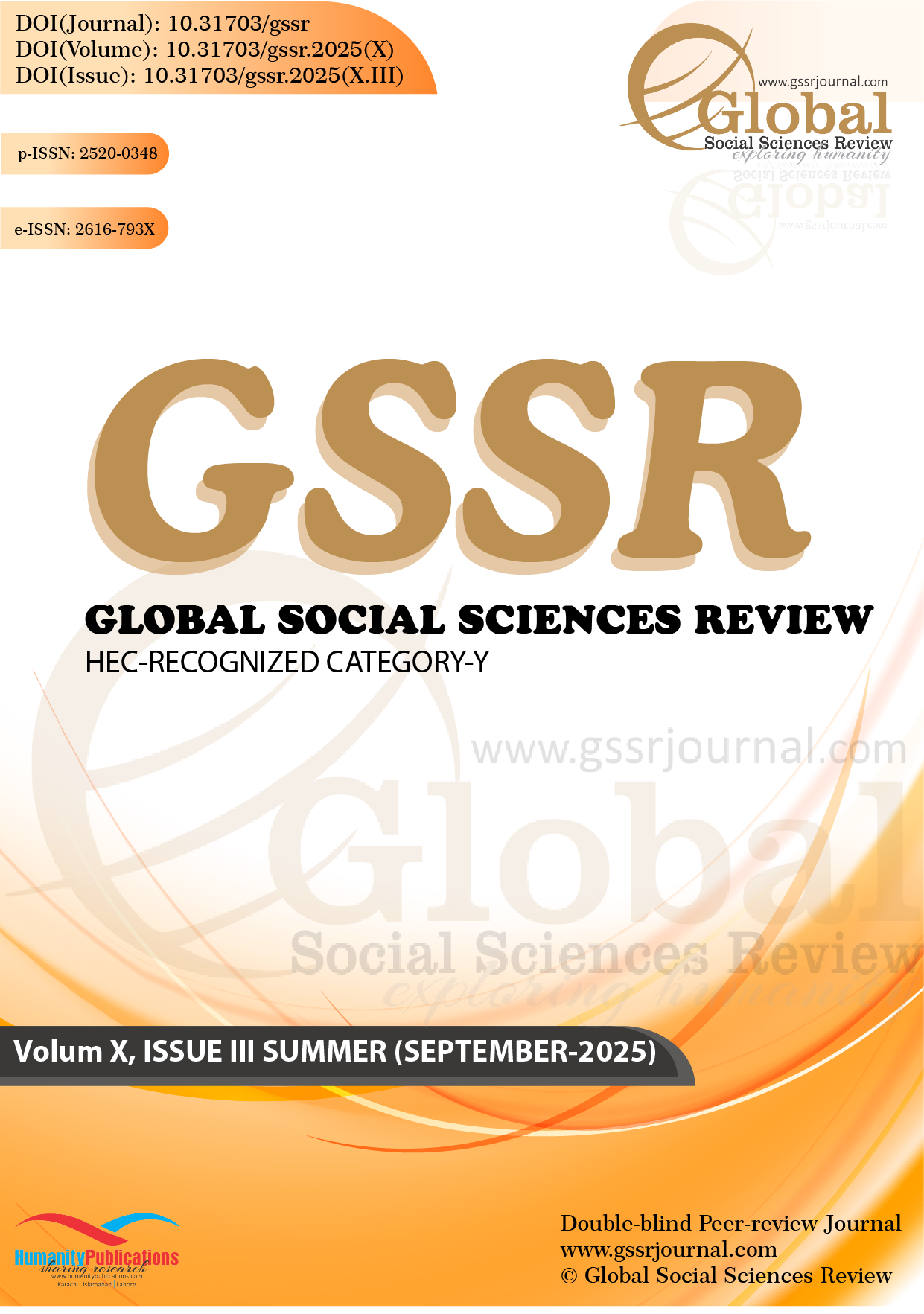 Volume X, Issue III (Summer 2025)
Volume X, Issue III (Summer 2025)  Volume X, Issue II (Spring 2025)
Volume X, Issue II (Spring 2025) 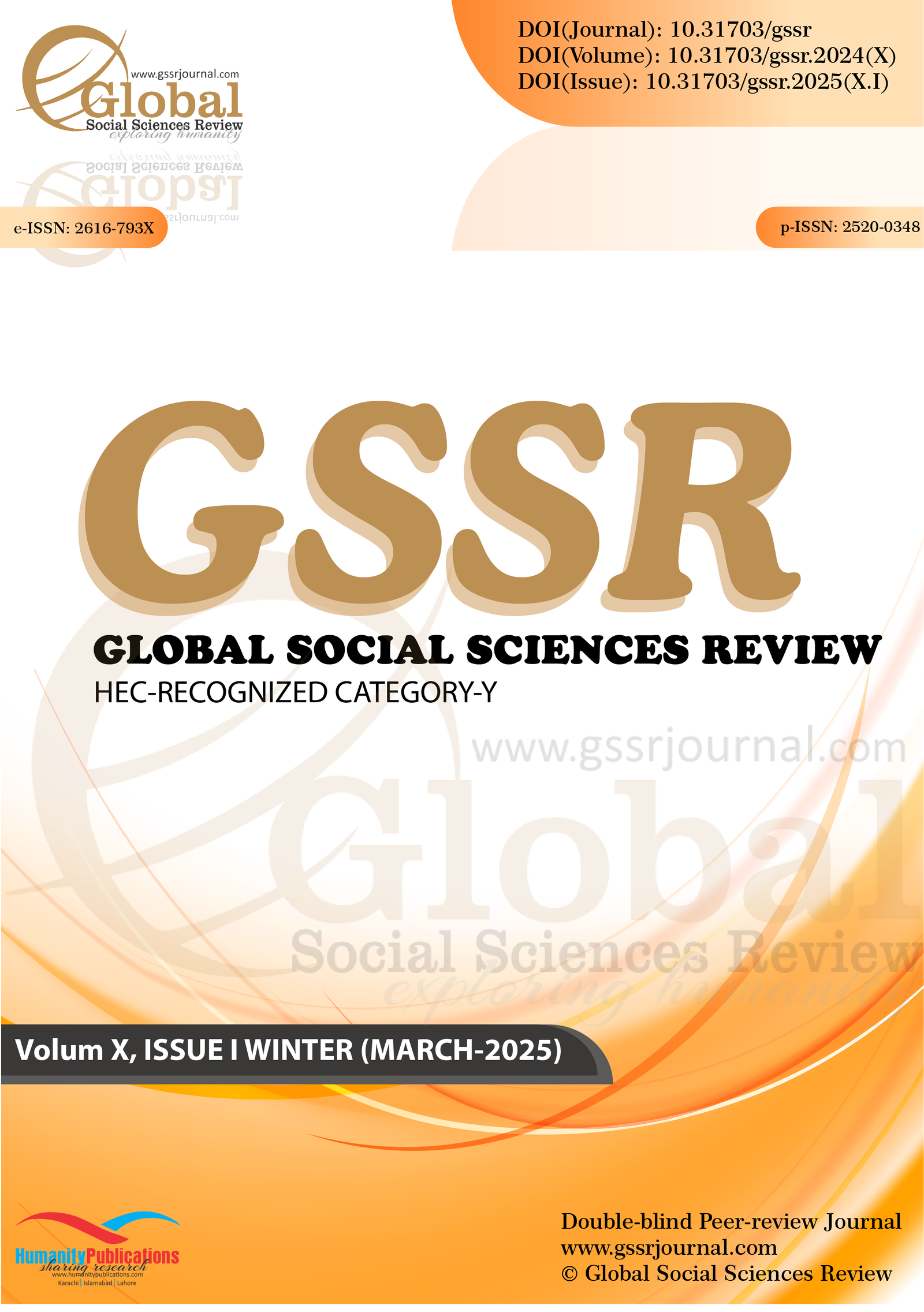 Volume X, Issue I (Winter 2025)
Volume X, Issue I (Winter 2025)  Volume IX, Issue IV (Fall 2024)
Volume IX, Issue IV (Fall 2024)  Volume IX, Issue III (Summer 2024)
Volume IX, Issue III (Summer 2024)  Volume IX, Issue II (Spring 2024)
Volume IX, Issue II (Spring 2024)  Volume IX, Issue I (Winter 2024)
Volume IX, Issue I (Winter 2024)  Volume VIII, Issue IV (Fall 2023)
Volume VIII, Issue IV (Fall 2023) 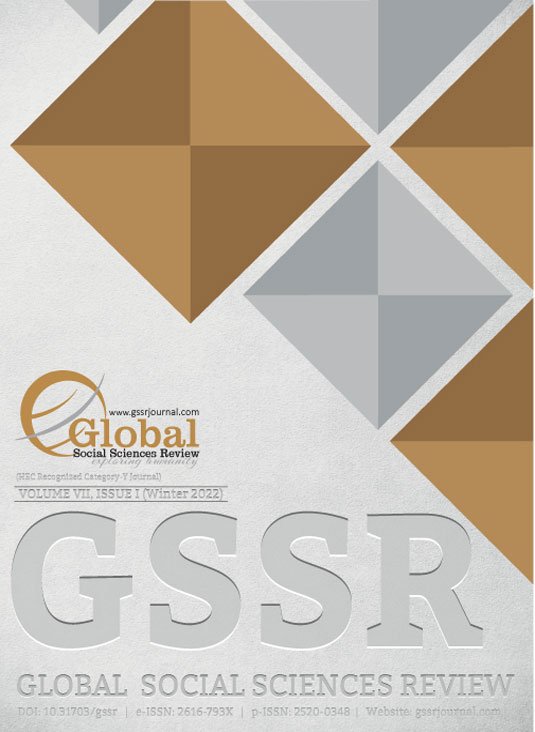 Volume VII, Issue IV (Fall 2022)
Volume VII, Issue IV (Fall 2022)  Volume VII, Issue III (Summer 2022)
Volume VII, Issue III (Summer 2022)  Volume VII, Issue II (Spring 2022)
Volume VII, Issue II (Spring 2022) 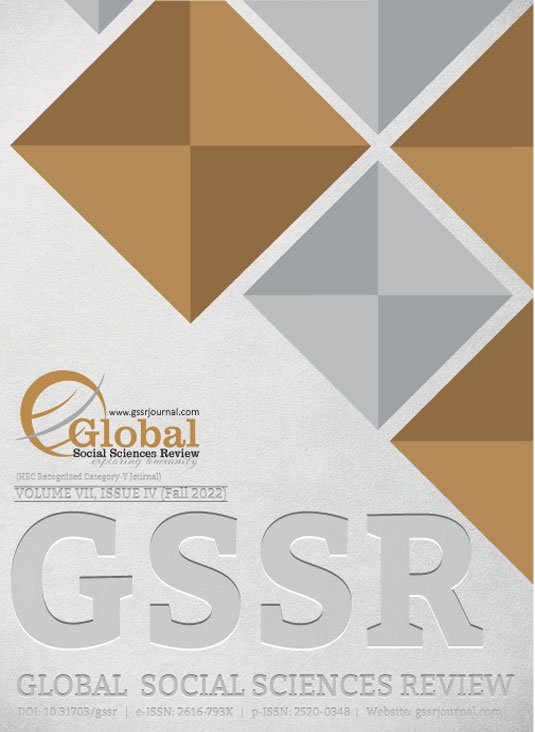 Volume VII, Issue I (Winter 2022)
Volume VII, Issue I (Winter 2022) 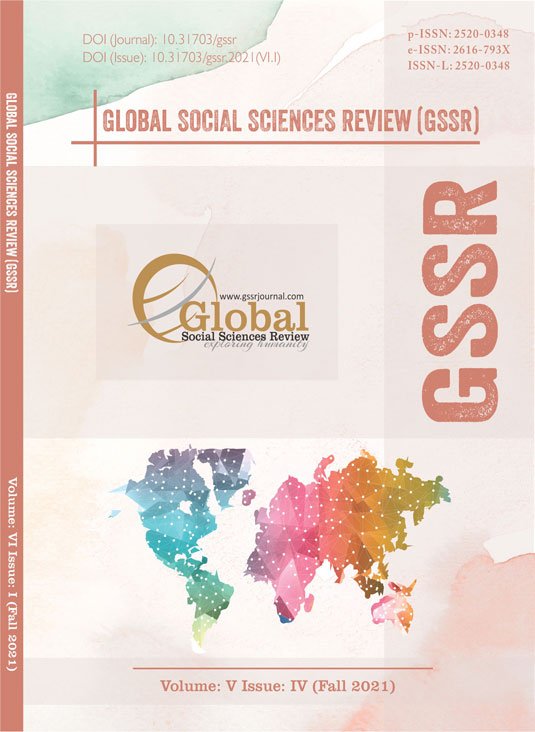 Volume VI, Issue IV (Fall 2021)
Volume VI, Issue IV (Fall 2021) 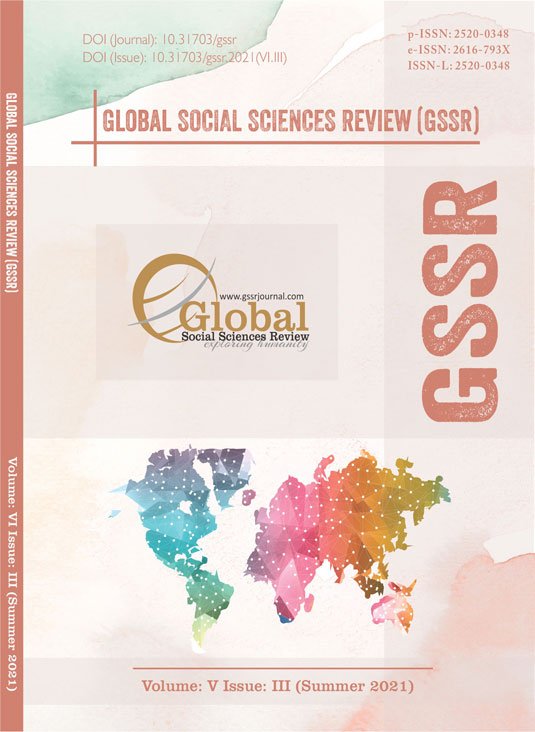 Volume VI, Issue III (Summer 2021)
Volume VI, Issue III (Summer 2021) 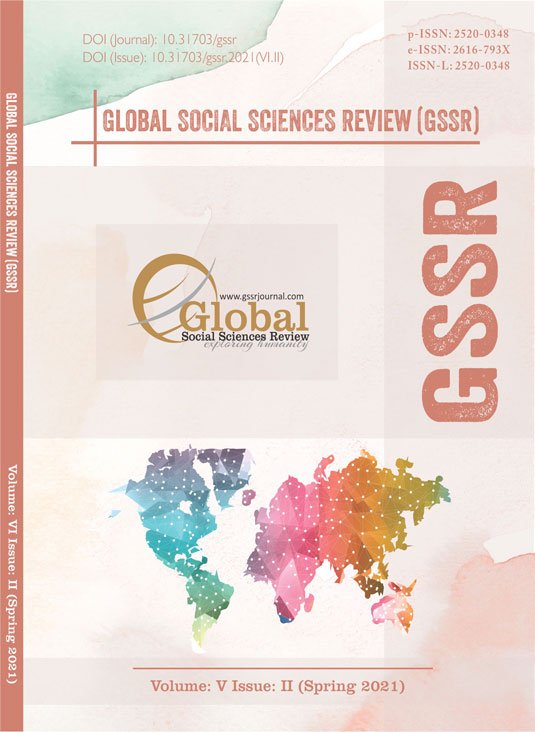 Volume VI, Issue II (Spring 2021)
Volume VI, Issue II (Spring 2021) 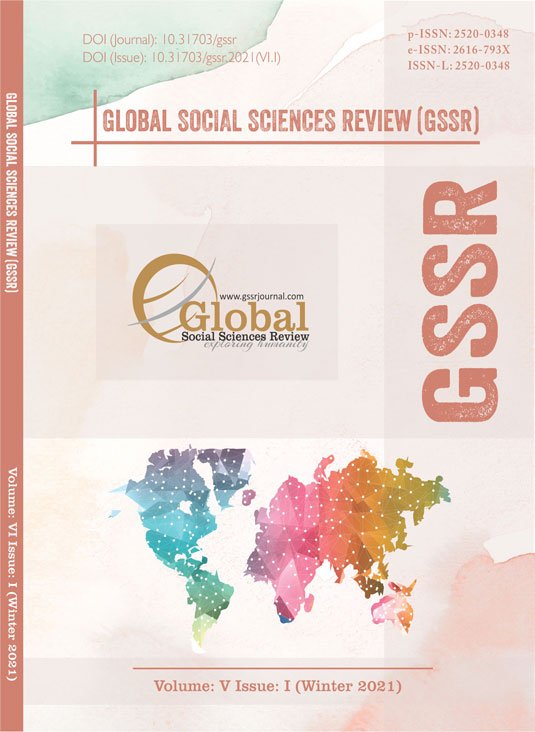 Volume VI, Issue I (Winter 2021)
Volume VI, Issue I (Winter 2021) 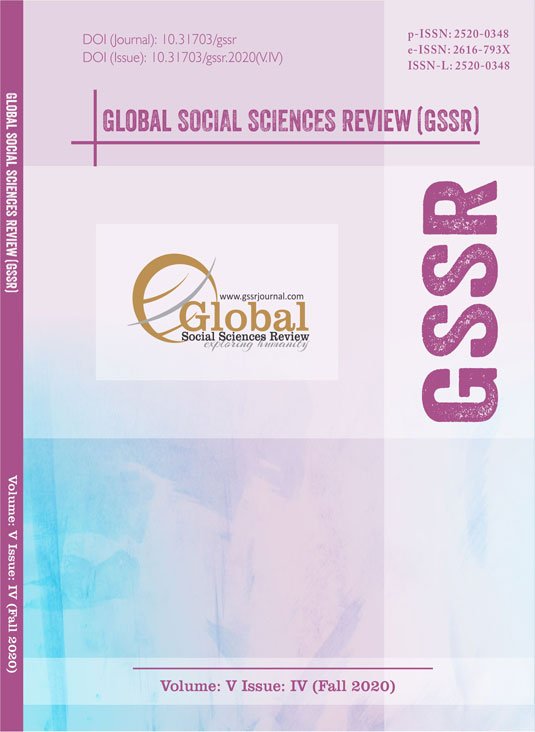 Volume V, Issue IV (Fall 2020)
Volume V, Issue IV (Fall 2020) 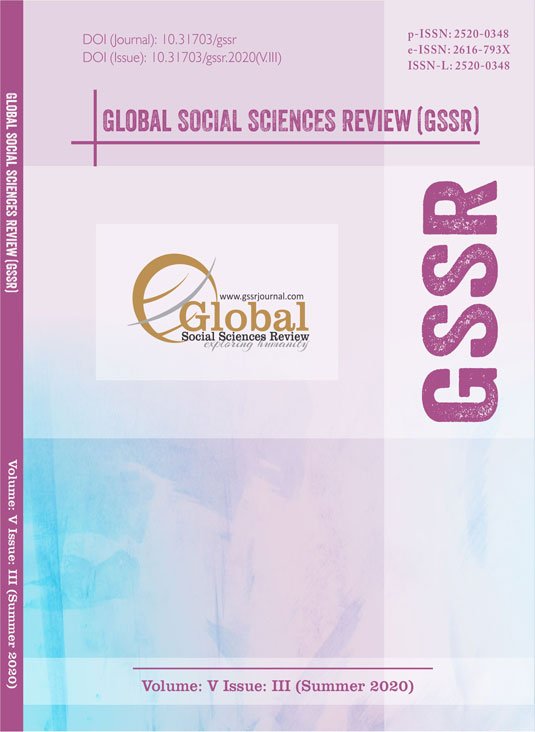 Volume V, Issue III (Summer 2020)
Volume V, Issue III (Summer 2020) 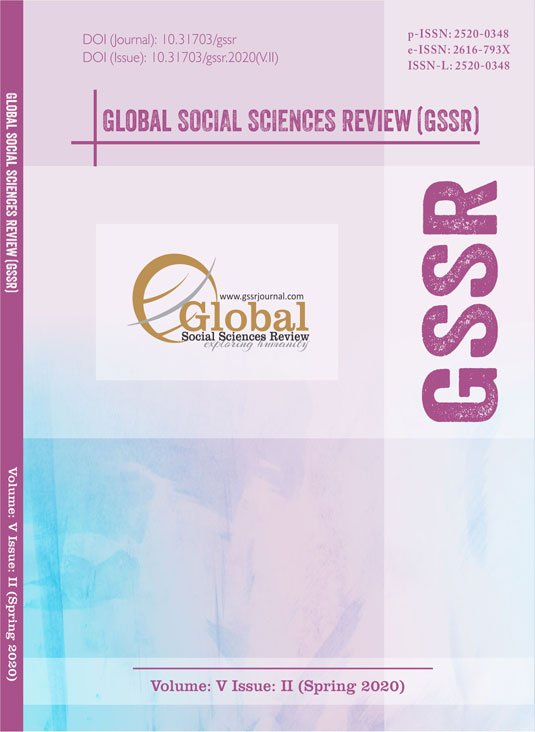 Volume V, Issue II (Spring 2020)
Volume V, Issue II (Spring 2020)  Volume V, Issue I (Winter 2020)
Volume V, Issue I (Winter 2020)  Volume IV, Issue IV (Fall 2019)
Volume IV, Issue IV (Fall 2019) 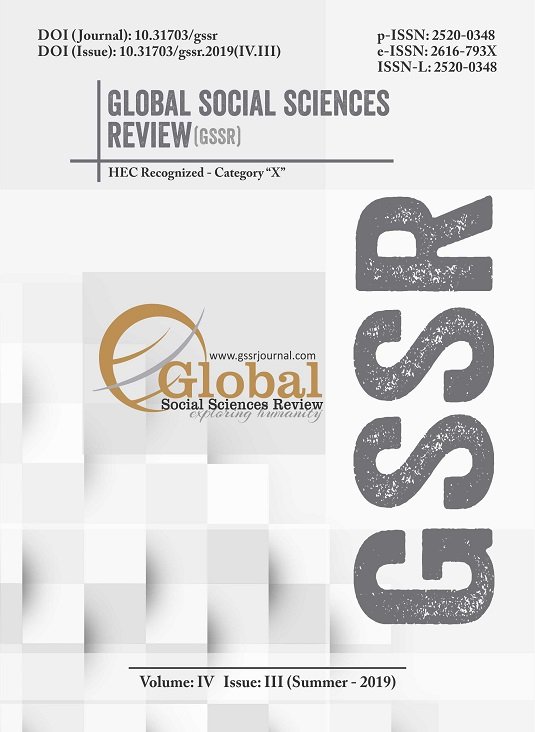 Volume IV, Issue III (Summer 2019)
Volume IV, Issue III (Summer 2019)  Volume IV, Issue II (Spring 2019)
Volume IV, Issue II (Spring 2019)  Volume IV, Issue I (Winter 2019)
Volume IV, Issue I (Winter 2019)  Volume III, Issue IV (Fall 2018)
Volume III, Issue IV (Fall 2018)  Volume III, Issue III (Summer 2018)
Volume III, Issue III (Summer 2018) 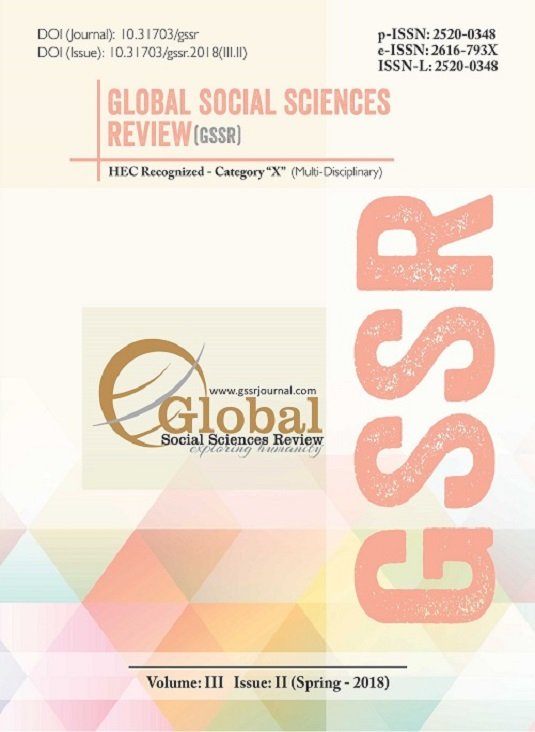 Volume III, Issue II (Spring 2018)
Volume III, Issue II (Spring 2018) 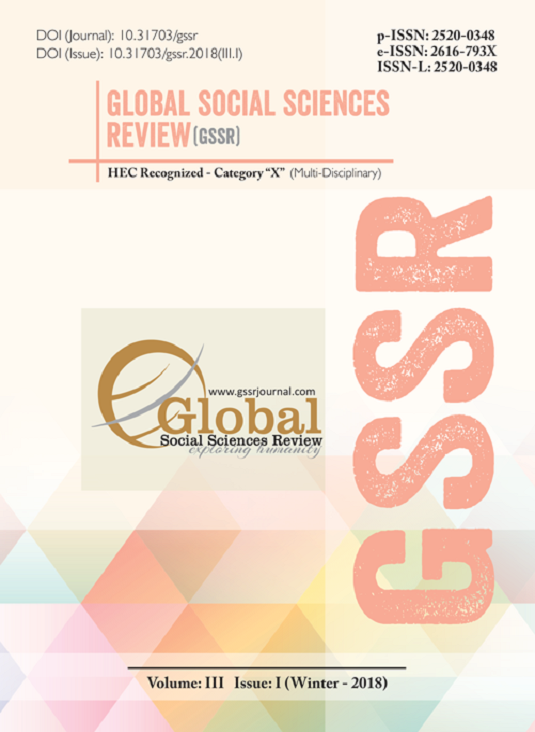 Volume III, Issue I (Winter 2018)
Volume III, Issue I (Winter 2018) 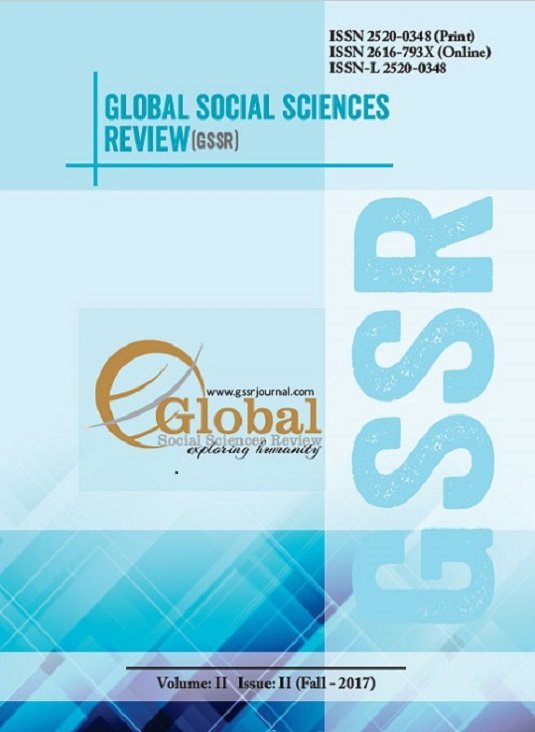 Volume II, Issue II (Fall 2017)
Volume II, Issue II (Fall 2017) 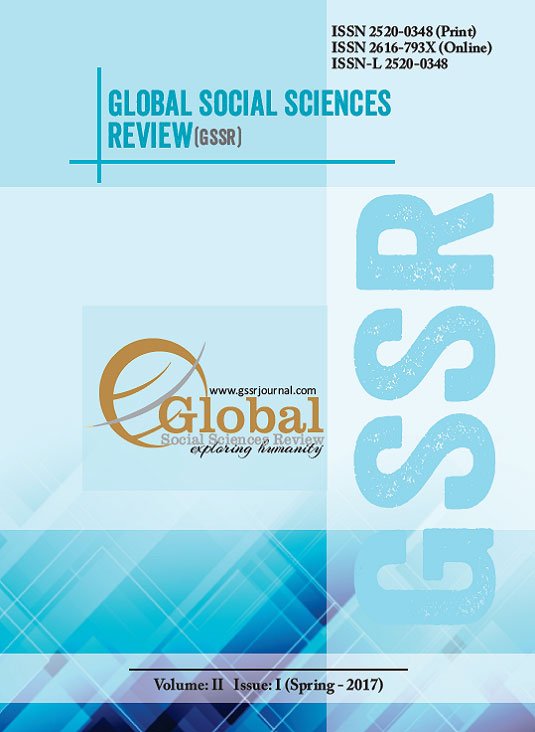 Volume II, Issue I (Spring 2017)
Volume II, Issue I (Spring 2017)  Volume I, Issue II (Fall 2016)
Volume I, Issue II (Fall 2016)  Volume I, Issue I (Spring 2016)
Volume I, Issue I (Spring 2016)